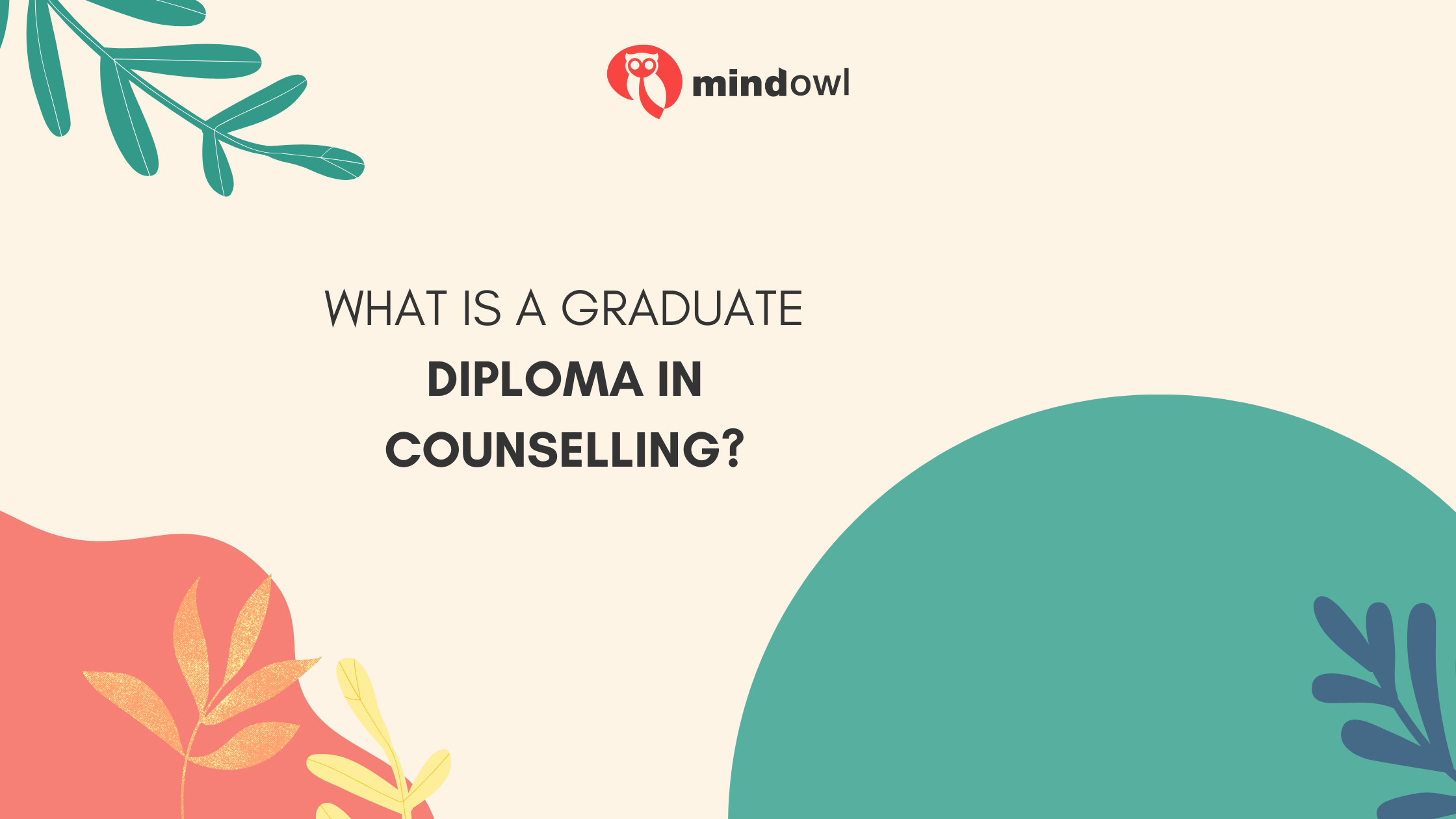Are you considering a career as a counsellor and aren’t sure what a graduate diploma in counselling is? The course trips many people up and leaves them confused about what it entitles and whether the course is necessary for their new career as a counsellor. To help put all of your confusion to bed, we will walk you through the course, the qualifications needed, and more to help you decide if it is the right course for you.
What is a graduate diploma in counselling?
A graduate counselling diploma is a postgraduate course that helps expand your current knowledge of counselling and provides you with the experience you need to work as a counsellor. Many counselling roles now require you to have at least a graduate counselling diploma, making it an essential step for many individuals looking to change careers or access a higher-paid counselling role.
Typically, the course is split across eight units and can take sixteen months to complete. You have the option of studying full or part-time, with many course providers offering an online course. With an online course, there is plenty of flexibility, and you can study alongside other employment or caring commitments.
The goals of the course are to build on the foundations of counselling and provide you with a respectful approach to counselling, helping you to become the best counsellor you can be. The unit titles can vary depending on the course provider, but you can expect to see titles like this:
- Core counselling skills
- Counselling theory and approaches
- Counselling skills in practice
- Diversity, inclusion, respect
- Introduction to placement and supervision
- Loss, grief and trauma in counselling
- Placement
- Principles of ethical conduct in counselling
Although the graduate diploma in counselling is offered online, there will be a placement unit that requires you to potentially travel. As part of the placement unit, you will work with an approved counselling agency, getting to put your new knowledge and skills into practice. You will get to observe counselling sessions and lead some of your own, keeping a record of your sessions, which can be used to allow you to reflect on your ability and evaluate areas that require improvement.
Throughout your placement, you will receive guidance and advice from a placement mentor. Their role is to guide you through your placement, ensuring that you are comfortable and get the support you need. Each course provider manages their placement units differently, so it’s best to speak to them directly to see if it’s the right course for you.

What qualifications do I need for a graduate diploma in counselling?
Entry requirements for a graduate counselling diploma can vary depending on the course provider, but typically, you will need either an undergraduate or postgraduate degree in any discipline. The broad entry requirements make it easy for anyone to retrain as a counsellor, regardless of their previous education or experience.
Applicants whose first language is not English will also need to meet non-standard English language requirements before being accepted to the course. Again, each course provider can set their own requirement level, which you must meet, so be sure to check these carefully before applying.
If you don’t have the qualifications, it does not mean you cannot retrain and become a counsellor. The graduate certificate in counselling has different requirements and allows those without a degree to study. Upon completing the graduate certificate, you can progress to the graduate diploma and get the skills and experience you need to become a counsellor.
What can I do with a graduate diploma in counselling?
After completing your graduate diploma in counselling, you have several career options available to you. Typically, graduates find themselves in one of the following roles:
- Case worker
- Child and adolescent counsellors
- Corrections and prison support
- Family relationships counsellor
- Mental health worker
- Private practice counsellor
- Support worker
- Youth worker
After completing a graduate diploma, some students choose to return to education and complete their master of counselling, which will provide them with a deeper understanding of the field and allow them to offer superior counselling and care to their patients.
Find your counselling course today
A graduate diploma in counselling course is the perfect step for anyone looking to become a counsellor. Not only will you gain the essential skills and knowledge to thrive as a counsellor, but the invaluable experience and support to help you become an excellent counsellor. Will you find your course today?
MindOwl Founder – My own struggles in life have led me to this path of understanding the human condition. I graduated with a bachelor’s degree in philosophy before completing a master’s degree in psychology at Regent’s University London. I then completed a postgraduate diploma in philosophical counselling before being trained in ACT (Acceptance and commitment therapy).
I’ve spent the last eight years studying the encounter of meditative practices with modern psychology.

